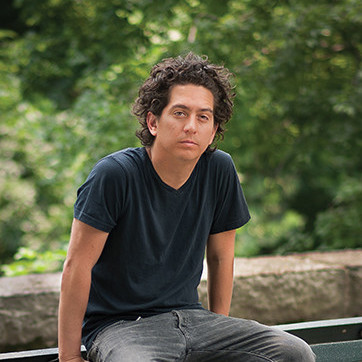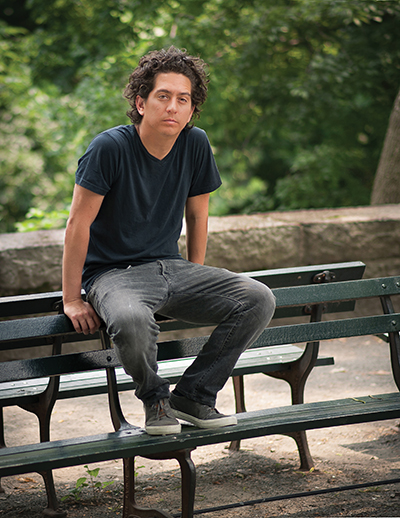
MM: In what ways is At Night We Walk in Circles relevant to your own experience?
DA: As much as the content of the book is me — aspects of the plot are riffs on my own life and my family’s life — the book itself is even more relevant to me as a human because writing the book was a period of my life. When you spend seven years on a book, your life circumstances change in the process, you change in the process. So I would say that all my books are relevant to my experience but probably not in ways that you would think.
MM: You write in both English and Spanish — what’s the difference in voice?
DA: I was raised in the U.S. and attended school here from kindergarten on, so obviously my English is better. My Spanish is good, but as I don’t have academic Spanish, the voice is a bit sparer. I don’t have the ability to say ornate things — I have an idea and have to refine it and figure out how I can say it, and sometimes those limitations shift the idea just slightly. It’s like writing with every other page pulled out of the dictionary. Luckily most of the Spanish I traffic in is on the radio, so it’s more colloquial, like I’m telling a story to a friend. I’m comfortable in that register.
MM: Is there a common element that informs your wide range of work as a novelist, long-form fiction writer and radio journalist?
DA: There’s a Spanish word, narrador, which is different from any English word for “writer” — it’s more all-encompassing. I work in stories, and I really like to listen. Even when I’m writing novels, I’m listening very carefully. I know I’m the one creating the ideas, I’m not a schizophrenic, but there is an internal listening aspect that is kind of a controlled schizophrenia.
MM: At Night We Walk in Circles is the 2015 One Book One Marin selection. What part of the partnership are you most excited about?
DA: I’m always excited to have people read my work. You spend so much time alone, in your own head, not engaging, and when people ask you what you do and you say, “I’m a novelist,” the next question is inevitably, “Have you written anything I would have read?” Now I can say, “Well, do you live in Marin?”
Page Turners
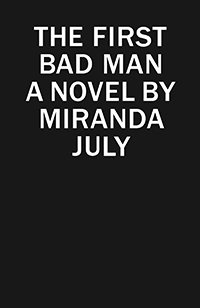
The First Bad Man by Miranda July, Scribner, $25. Cheryl is an anxiety-ridden single woman whose life has been shaped by a feeling that past lives haunt her present. Accustomed to a reality that encompasses multiple lifetimes, Cheryl is thrown for a loop when her boss’s 21-year-old daughter moves into her house, forcing her to reexamine her relationships in real time.
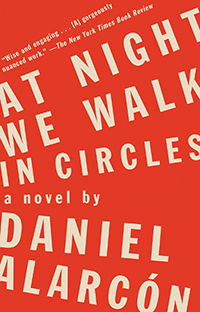
At Night We Walk in Circles by Daniel Alarcón, Riverhead, $16. When Nelson, an aspiring actor in South America, is cast in the lead role of a play written by his idol, going on tour with Diciembre, a guerilla theater troupe, appears to be an opportunity to escape his less-than-perfect life. Through the fixated gaze of an obsessed narrator, readers watch Nelson’s attempt at success spiral into a chaotic journey. Appearing at Book Passage Corte Madera February 4, 7 p.m. One Book One Marin choice.
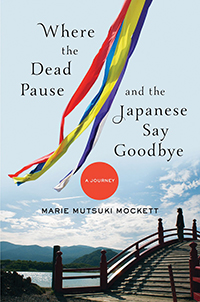
Where the Dead Pause, and the Japanese Say Goodbye: A Journey by Marie Mutsuki Mockett, W.W. Norton & Co., $26.95. In the wake of the devastating 2011 tsunami, Marie Mutsuki Mockett traveled to Japan, carrying with her an enduring grief triggered by her American father’s unexpected passing. In her first memoir, Mockett explores grief on a personal, communal and existential level, all the while painting a vivid picture of Japan and its culture. Appearing at Book Passage San Francisco January 20, 6 p.m.
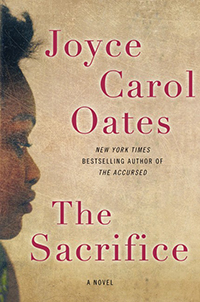
The Sacrifice by Joyce Carol Oates, HarperCollins, $26.99. After a 14-year-old girl is allegedly victimized in a horrific act of racial violence, residents of a small New Jersey town reflect on a long history of racial tension in their community. With a multiracial cast of characters, Oates gives voice to a range of perspectives, emotions and misconceptions surrounding race. Appearing at Book Passage Corte Madera January 31, 1 p.m.
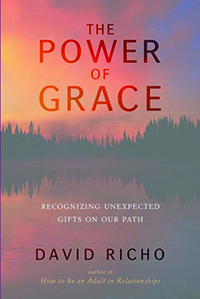
The Power of Grace: Recognizing Unexpected Gifts on Our Path by David Richo, Shambhala, $16.95. A surge of power in a period of weakness; a suddenly clear answer to a baffling question — David Richo identifies grace as the force behind these unprompted moments of clarity. Richo asserts that each of us experiences grace every day, refuting the notion that it must stem from religion. Learn to embrace grace and channel the greatest asset you never knew you had. Appearing at Book Passage Corte Madera February 28, 1 p.m.

